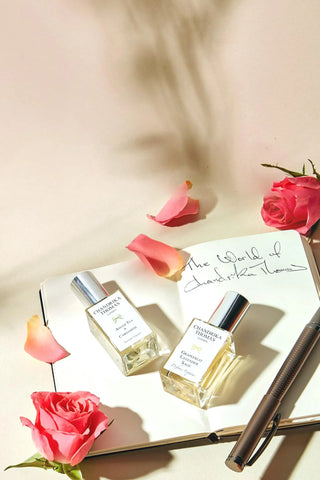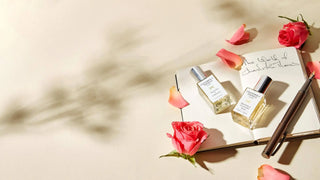When it comes to perfumes, longevity is an art as much as it is a science. We all desire our cherished fragrances to linger beautifully, yet several factors can influence their performance. By understanding these nuances, you can preserve the essence of your perfumes and ensure they continue to enchant for years to come.

Environmental Factors: Heat, Light, and Humidity
How Heat and Light Degrade Perfumes
Perfumes are exquisite compositions of delicate ingredients, and exposure to heat and light can significantly compromise their integrity. Heat accelerates the breakdown of fragrance molecules, subtly altering the perfume’s character and diminishing its longevity. Elevated temperatures can also cause evaporation, leading to the loss of those ethereal top notes that provide the fragrance’s initial allure.
Light, particularly sunlight, is equally unkind. Ultraviolet (UV) rays infiltrate the bottle, triggering chemical reactions that erode the fragrance’s delicate balance. Over time, this degradation can result in a scent that feels lacklustre or even unpleasant.
Tip: To safeguard your perfume, store it in a cool, shaded sanctuary, ideally in its original box or a dedicated, light-free space far from windows and heat sources.

The Impact of Humidity on Fragrance Longevity
Humidity exerts its own influence on a perfume’s performance. In sultry, humid conditions, a fragrance’s projection may be subdued as moisture in the air mingles with scent molecules. Conversely, dry environments might extend the perfume’s wear but could amplify certain notes, occasionally unsettling the intended harmony.
Tip: To maintain your perfume’s intended charm, avoid storing it in places with erratic humidity, such as bathrooms. Opt instead for a stable, climate-controlled environment.

How Air Exposure Changes a Perfume’s Chemical Composition
Air exposure is another silent adversary of perfume longevity. The moment air enters a bottle, oxidation begins, gradually altering the fragrance’s composition. Over time, this process can mute the scent’s vibrancy, transform its original profile, or introduce unwanted off-notes.
This issue is particularly pronounced in splash bottles or decants without atomisers, where larger volumes of liquid are exposed to air compared to spray bottles.
Tip: Choose perfumes with spray mechanisms to minimise air exposure and protect the fragrance’s integrity.

The Importance of Proper Bottle Seals to Prevent Oxidation
The design and sealing of a perfume bottle are crucial in preserving its essence. A well-sealed bottle keeps air at bay, shielding the fragrance from oxidation. On the other hand, bottles with compromised seals allow air to infiltrate, hastening the scent’s decline.
Tip: Always ensure your perfume bottles are securely closed after each use. If a bottle’s seal is damaged, consider transferring the fragrance to a smaller, airtight container to limit exposure.

The longevity of a perfume is a delicate interplay of external factors, including environmental conditions and air exposure. By understanding the impact of heat, light, humidity, and oxidation, you can take thoughtful steps to preserve your fragrances. With proper storage, minimal air exposure, and a stable environment, your favourite perfumes can remain as captivating as the day you first encountered them.



